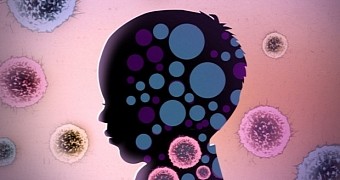Scientists with Clarkson University in the US are now working on developing a saliva test that they say could help diagnose autism by focusing on more than just behavioral patterns.
By shifting the focus from behavioral observations towards biological differences between autism patients and healthy individuals, this test has the potential to allow for earlier diagnosis.
What this means is that children suffering from this condition could receive help while still at an early age, even before the behavioral problems associated with autism become obvious.
Why a saliva test of all bodily fluids?
In a recent paper in the journal Autism Research, the Clarkson University scientists explain that, having carried out several tests, they found that the saliva of people affected by this condition has a unique chemical profile.
Specifically, the researchers say that, when studying the saliva of 6 autism patients between the ages of 6 and 16, they found it to contain higher levels of certain proteins and surprisingly low levels of others.
Interestingly enough, the scientists say that these saliva proteins that they linked with autism and that evidence indicates interact with each other quite often are chiefly involved in immune responses.
“We found nine proteins that were significantly elevated in the saliva of the people with autism and three that were lower or even absent,” explains specialist Alisa G. Woods, as cited by Science Daily.
If the Clarkson University researchers got it right and the saliva of autism patients does, in fact, have a unique chemical profile, this find could pave the way for the development of a biological test for this condition.
Thus, rather than simply make observations about a patient's behavior, doctors could look at the makeup of their saliva and keep an eye out for the proteins that, in too high or too low concentrations, signal autism.
The test could transform medicine
In this day and age, autism spectrum disorders are as common as one in 68 children. Besides, recent reports indicate that this figure is on the rise. Hence, it's important that better diagnostic tools be developed.
Apart from promising to diagnose this condition before behavioral issues become obvious, what makes the saliva test the Clarkson University specialists hope to develop so appealing is the fact that it would be very easy to perform.
Simply put, saliva samples are by no means difficult to obtain and studying their chemical profile is not exactly rocket science either. For these reasons, a saliva test for autism sounds promising to say the least.

 14 DAY TRIAL //
14 DAY TRIAL //